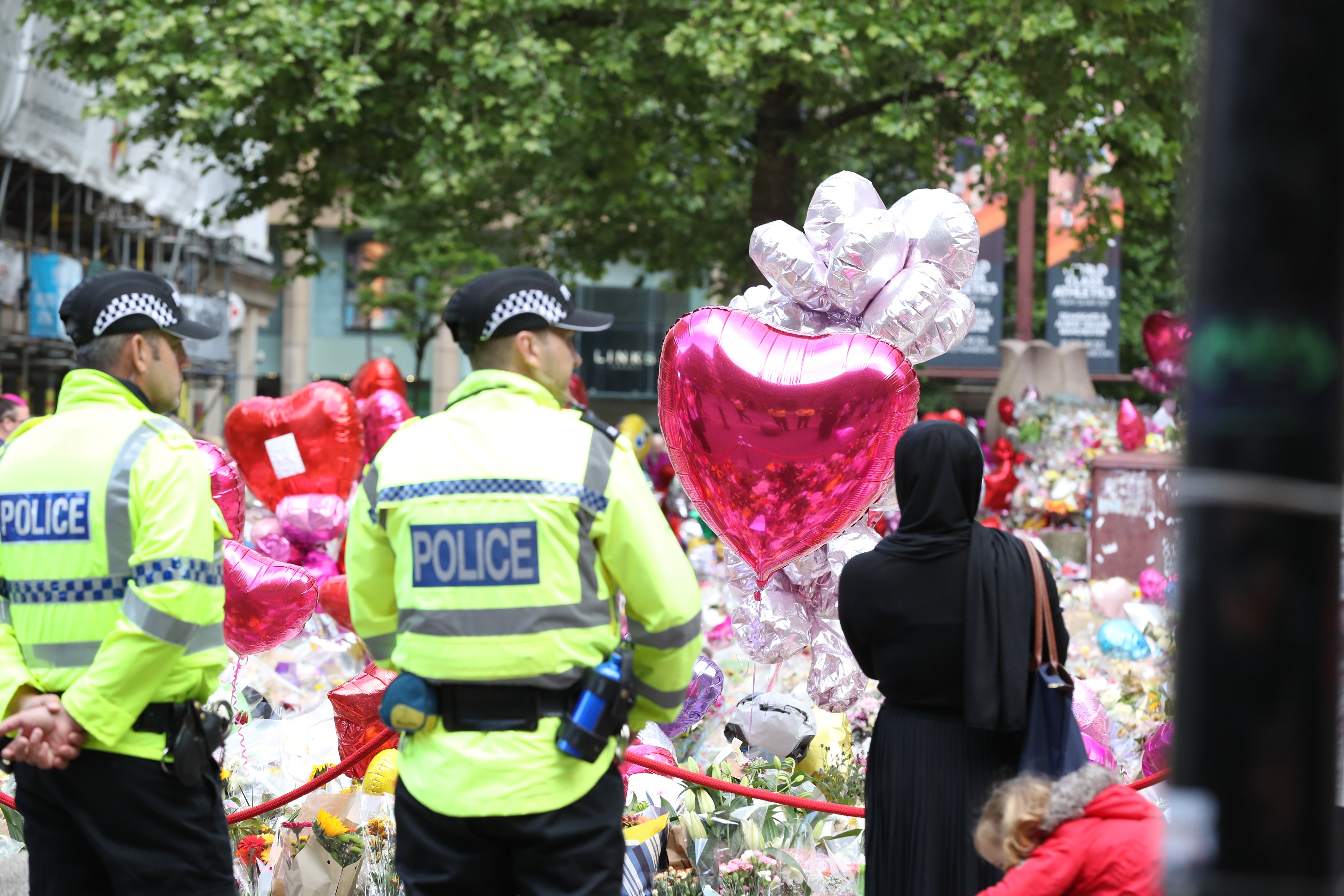Cost concerns over venue security duty plans in wake of Manchester bombing
Industry leaders have warned that a legal requirement for venues to have security could be a challenge for smaller businesses.

Your support helps us to tell the story
From reproductive rights to climate change to Big Tech, The Independent is on the ground when the story is developing. Whether it's investigating the financials of Elon Musk's pro-Trump PAC or producing our latest documentary, 'The A Word', which shines a light on the American women fighting for reproductive rights, we know how important it is to parse out the facts from the messaging.
At such a critical moment in US history, we need reporters on the ground. Your donation allows us to keep sending journalists to speak to both sides of the story.
The Independent is trusted by Americans across the entire political spectrum. And unlike many other quality news outlets, we choose not to lock Americans out of our reporting and analysis with paywalls. We believe quality journalism should be available to everyone, paid for by those who can afford it.
Your support makes all the difference.Plans for venues to be legally required to have security in the wake of the Manchester Arena terror attack could pose challenges for smaller businesses, industry leaders have warned.
The Government is developing plans for the so-called Protect Duty in the wake of the May 2017 atrocity, in which 22 people were killed as they left an Ariana Grande concert.
The Home Office said proposed legislation would be introduced to Parliament at the “earliest opportunity” on plans that would place a legal duty on some public places to be prepared for a terror attack. Currently, the vast majority of venues do not have to employ security measures.
A recurring subject in the responses to a consultation on the plans was a “concern that the duty may negatively impact organisations financially”, according to documents published on Monday.
Small businesses, charities, voluntary organisations and places of worship were deemed “most at risk” and there may be “potential closure of organisations due to additional costs”, and insurance costs could rise, the summary of the responses said.
The implications for the police, as a result of enforcement measures, were also raised.
Michael Kill, chief executive of the Night Time Industries Association, said the role of protecting staff and customers was taken “extremely seriously”, but warned that there would be “challenges for smaller businesses, which will need a considerable level of support from Government and local authorities as they assess the risk and action plan accordingly.”
He added: “While we focus on public safety there are some concerns from the sector, particularly smaller independent businesses, on the cost of implementing measures, proportionately against risk, but also wider industry concerns, in particular the lack of licensed security personnel, which will be a fundamental requirement as we move into the busier periods of 2022.
“It is vitally important that the Government, police and local authorities work closely with businesses through this process, but also consider some of the inherent challenges from the pandemic.”
The duty could be applied to venues with a capacity of 100 or more people and to organisations with 250 or more staff, according to a consultation document published last year.
The rules could be imposed on public venues such as sports stadiums, tourist attractions or shopping centres, large organisations such as retail or entertainment chains, and open spaces like parks and beaches, among others.
Figen Murray, the mother of 29-year-old Manchester Arena victim Martyn Hett has campaigned for the introduction of new rules, dubbed Martyn’s Law which included calls for venues and local authorities to have action plans ready for such attacks.
She told the PA news agency that the progress made with the plans was a “huge milestone” but the Government needed to “carefully consider” the thoughts of the industry and anyone the law would apply to, adding: “If it’s not done right, and to the satisfaction of the stakeholders, it’s not going to work anyway. And the law will end up becoming a failed law.”
She suggested one option would be for venues to raise the money needed through a “ringfenced” security levy, by adding a small additional charge to its prices, such as 50p per ticket.
It would be amazing if the new laws could be passed by the time the fifth anniversary of the attack comes round in May, Ms Murray said, but she accepts the process can take “quite a long time”.
According to the consultation findings, seven in 10 of 2,755 respondents agreed that publicly accessible locations should take measures to protect people from attacks, including ensuring staff were trained properly.
There was an understanding that measures should be proportionate to the size of the venue, with a greater onus put on those that are larger, the Home Office said.
Home Secretary Priti Patel said: “We will never allow terrorists to restrict our freedoms and way of life, which is why we are committed to bringing forward legislation this year that will strike the right balance between public safety, whilst not placing excessive burden on small businesses.”
Subscribe to Independent Premium to bookmark this article
Want to bookmark your favourite articles and stories to read or reference later? Start your Independent Premium subscription today.